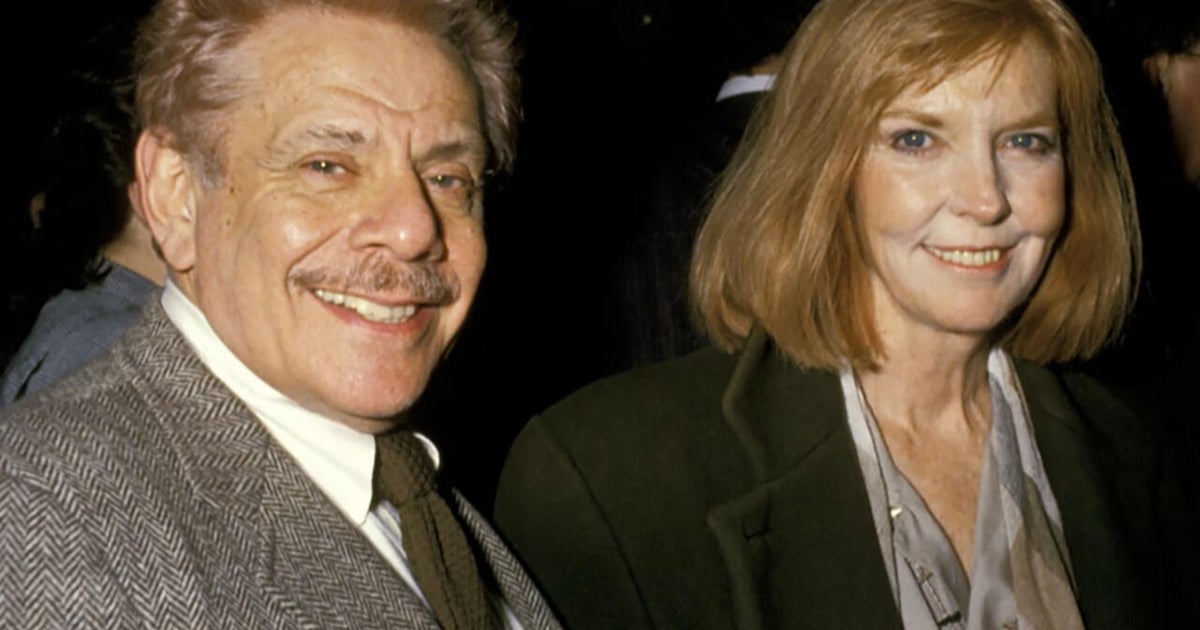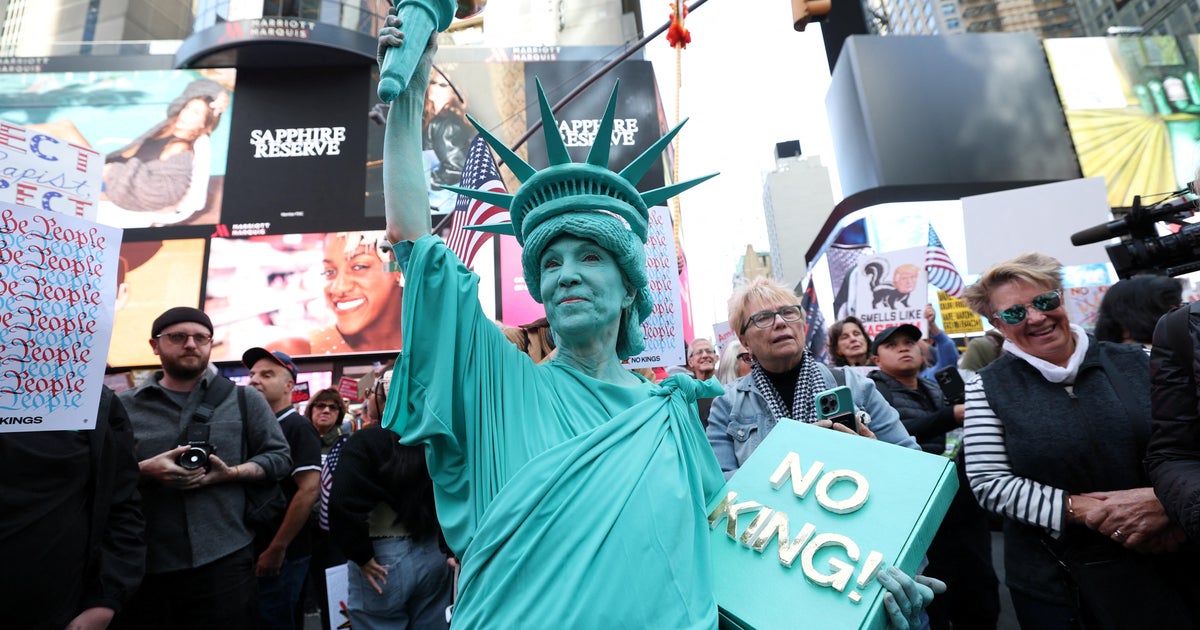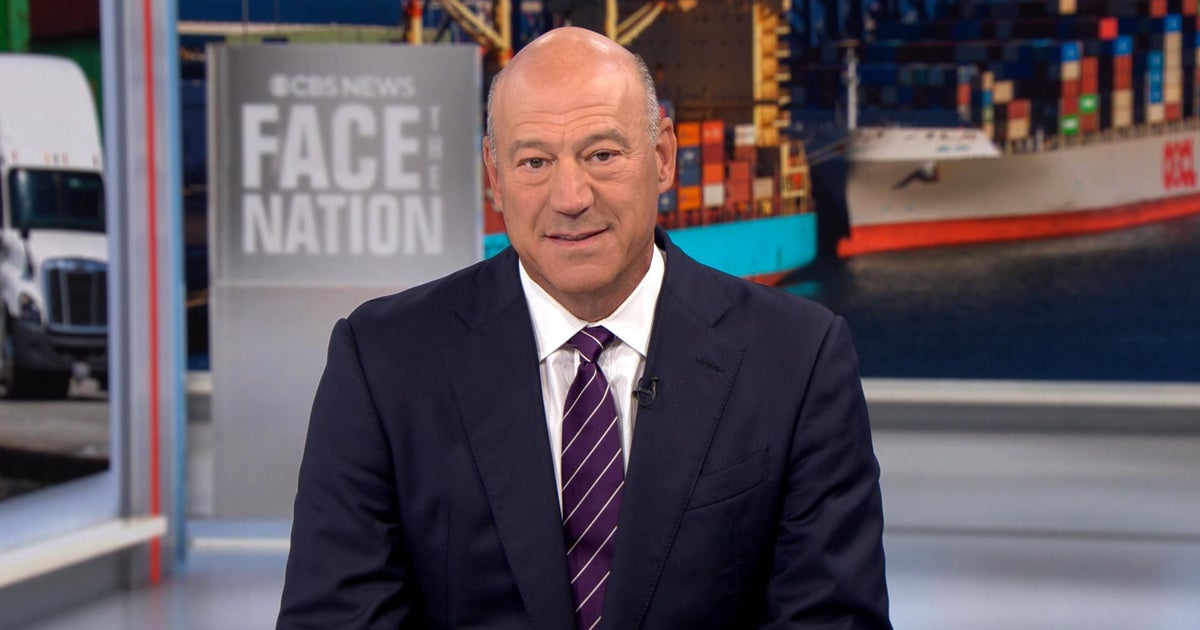A-List actor and director Ben Stiller knows a good story when he sees one, so he knew profiling his late parents, Jerry Stiller and Anne Meara, would be compelling. But even he had no idea how deep it would take him. “No, I didn’t!” he laughed. “I mean, I didn’t know where it was gonna go.”
Stiller & Meara had been the husband-and-wife comedy team of the 1960s and ’70s, appearing on “The Ed Sullivan Show” 36 times. But for Ben and sister Amy, Stiller & Meara were also Mom & Dad – and that could get confusing.
Stiller’s new Apple TV documentary, “Stiller & Meara” Nothing Is Lost,” examines how his parents navigated both roles.
Married 62 years, their family life was shaped by Jerry’s relentless ambition, and Anne’s resentment doing comedy when her dream was to be a serious actress – and the drinking that followed. As Ben noted in his film, “She had to go up there and do that act, because she was so good at it. But it wasn’t really her true thing, you know? It wasn’t her true happiness.”
The film is an adult’s attempt to answer the complicated question that shaped his childhood: Where did the act end, and the marriage begin?
In one archival interview, Jerry Stiller calls his wife “the funniest woman in the world off stage and on stage. Now the thing is, when she does these funny things, I am an exploiter and opportunist, and I’ll take a pencil and I’ll start to write it down.”
Anne Meara picks up: “He says we can use that on a show, and I’m ready to kill him! Again, where does the act end and the marriage begin?”
Ben Stiller said, “There’s so much footage and material and things to show of the good and the bad and the tension and the happy times. I felt it was really important to try to have a balance in the film that would relay to the audience what the reality was of their relationship, which was, I think, grounded in love.”
It wasn’t just old clips from long-ago shows that Stiller had access to. He stumbled into some unexpected help while cleaning out the family apartment to sell: Jerry Stiller had secretly taped everything, producing boxes and boxes of recordings. “I had no idea that there were these sort of arguments and discussions that he had recorded,” said Ben. “All of it, I’d never heard before. It brought me back to being a kid in the house when they were working together.”
For a filmmaker trying to figure it all out, Ben Stiller had struck gold.
Among the recordings was a conversation in which his father talks to his mother about her drinking, and confronts her about it.
I asked, “Was it important to you in terms of understanding your dad, that you could hear him do that?”
“Yeah,” said Ben. “I was like, ‘Oh, okay. He really did speak to her about it.’ Because as kids that was never anything we talked about.”
“You may be carrying around this sense of, why didn’t dad ever confront mom? Guess what – he did.”
“Right! He did,” said Ben. “And it changed.”
This deconstruction of his parents’ marriage came while Stiller was wrestling with his own mid-life issues. Separated at the time from his wife, actress Christine Taylor (with whom he later reconciled), Stiller describes himself as having felt out of balance and unhappy, disconnected from his family, and a little bit lost.
He talked about the irony of thinking he was doing so much better than his parents: “When you’re younger, you think, Okay, I’m gonna do everything better. I’m not gonna make THAT mistake. I found myself at a place in my life where things weren’t really in sync.”
Stiller & Meara now had some company under the magnifying glass: their son. “I didn’t want to pretend to be some sort of objective judge of their relationship when I had so many issues in my own relationships and my stuff,” he said,
Was that a challenging journey to make himself? “Yeah,” he said. “Then it changed everything because it was like, oh, okay. I’m gonna have to, you know, talk about my own feelings! It’s stuff that I don’t really ever, you know, talk about.”
Not exactly where he expected to end up, when he started the project. In honest, raw, and revealing conversations with his daughter Ella and son Quin, Ben talked in the film about his own issues being the child of someone famous: “I remember there was this one time I literally was on the street talking to him about the fact that I felt like he didn’t pay enough attention to us, and while we were talking someone on the street came over and said, ‘Jerry, I love you work’ and he started talking [to them]!”
Stiller exposes the excruciating challenge of breaking patterns, when his son adds: “That’s hilarious, because just a few weeks ago we were all out at a restaurant and I’d been stressed about college stuff. And then the people there wanted to get a picture of you, and I remember I was so frustrated, like, the world just has to stop to get this picture.”
Stiller said, “I was genuinely surprised when he told me that. As a filmmaker I thought, This is an interesting moment in the movie.”
“As a father?” I asked.
“As a father I was like, Oh, s***,” he laughed.
Ben Stiller has done something requiring more courage than simply making an honest movie about loved ones; he’s made an honest movie about himself.
I said, “One of the most uncomfortable places you can ever be is the mirror, right? Sometimes your kids are holding up the mirror.”
“Yeah, you know, it’s kind of like … it is a bummer, ’cause I’m never gonna get to go back, you know?” Stiller said.
And that’s helped him round the edges from his own childhood – finding the grace to give his parents by understanding he might need to seek some of his own.
Asked where he stands in his relationship to his parents, Stiller replied, “I don’t know!”
“All this work, and you don’t know?”
“Well, I mean, they’re still not here. That was the sad thing for me about finishing the movie. It was like, Oh, now I don’t have an excuse to kind of just be connecting with them here.“
I asked, “This was an intense reconnection when it sounds like you needed it the most?”
“Yeah,” said Stiller. “Like my mom probably would have said, like, ‘Yeah, go make a movie about it if you wanna figure out how to process your feelings!'”
Story produced by Gabriel Falcon. Editor: Remington Korper.




